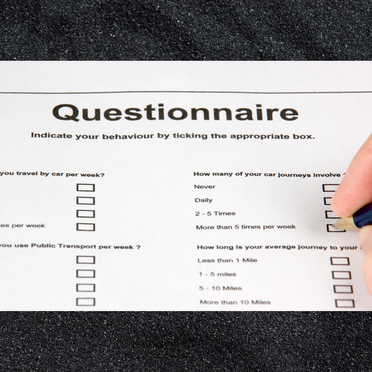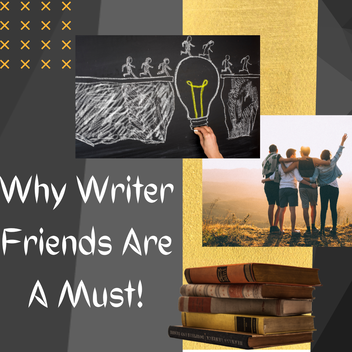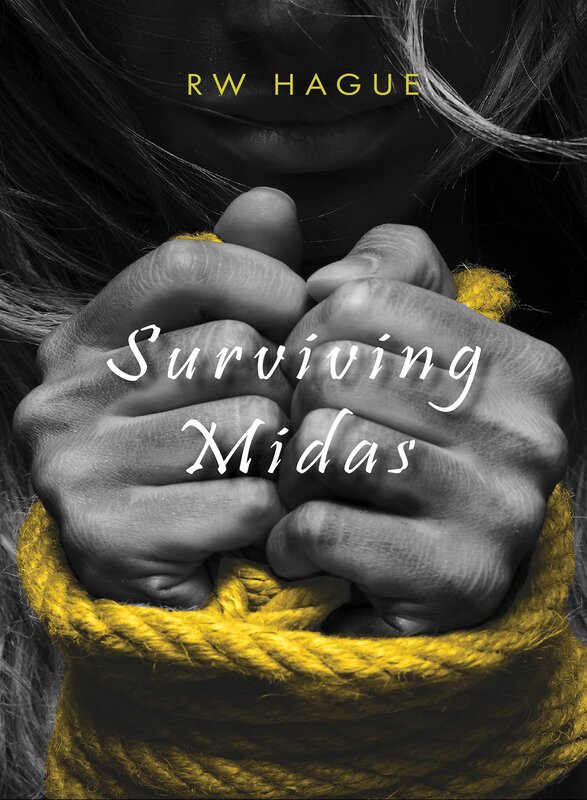|
How to Introduce Characters Without Overwhelming Readers  If you’ve been pursuing writing for any amount of time, you’ve probably come across those little charts that help you list every personality quirk known to man about your characters. What’s their favorite color? Their favorite food? When was their last BM and do they have problems with this? Oh wait, no, that’s a nursing questionnaire. Sometimes I get my careers mixed up. Point being, these little charts are ubiquitous to writing blogs and can be helpful when coming up with character basics. These tools, however, don’t help you introduce your characters to your readers. In fact, the majority of the things listed on the questionnaire are completely insignificant to the story that you are trying to tell. And yet time and time again, I’ve seen writers trying to dump this information into their stories, and all it does is muddy the water for your readers. I liken the experience to those word math problems back in school. In the older grades, the test creators would add superfluous information to the scenario to see if students could differentiate between relevant and irrelevant data. But you’re not trying to test the IQ of your readers. You’re supposed to be taking them on an entertaining journey through this world you’ve created. Differentiating relevant vs. irrelevant data is YOUR job. But I worked so hard on this questionnaire! Now, I love my characters and want my readers to love them just as I do. Won’t they care about their favorite type of ice cream? No. They won’t. If it has NOTHING to do with the plot, I assure you of this, they will not care. People can only take in a certain amount of data before their eyes roll back into their heads, exposing the words ‘Memory Full’ written in the whites. And the perfect way to create this scenario is to bore them with facts. While knowing superfluous information about your characters can be helpful for the author, it should not be neglected for the core things.  Who is your main character seems like a basic question, but when you have a cast of twenty people, it can be hard to say. Sometimes X is running the show and at other times Y takes the lead. But who, at the core of your story, is the main person? Who owns the story arc? Who’s making that hero’s journey as it were? If you don’t know, then how will your readers know? Start there, then build your characters around that pillar. If it helps, remove the character’s names. Reduce these people down to their titles: main character (MC), MC’s best friend, MC’s rival, MC’s brother. Then use those anchoring features to introduce them to your readers from the perspective of the MC. It’s okay to tell your readers who these folks are too. In fact, I urge you, especially as a beginner, to do so. This is not always one of those ‘showing is better than telling’ sort of things. Sure, do that later when you try to describe the quality of the relationship, but when you’re grounding your reader into your story, just throwing out a fact is completely fine. The reader is already going to be lining up the cast in relation to the MC anyway, all you’ve done is assisted them in doing so. Now, each time X shows up, the reader will be going ‘oh right, the best friend.’ Labeling helps people categorize and keep track, which is essential at the beginning of a relationship. Another benefit to this statement of facts is the shorthand that comes with it. A best friend is trusted, loved, a confidant, etc. A rival is none of those things and often despised. With that position alone you have helped the reader know what to expect from your characters without listing out every detail of his life. You can continue with locations as well. When you introduce a new setting, make it personal to your MC. MC’s hometown/planet, MC’s bedroom, MC’s college dorm room, MC’s spaceship. Again, you are signaling with shorthand something to your reader, a feeling perhaps. Nostalgia? Familiarity? Remorse? This feeling, of course, will vary according to your character and their backstory. Instead of starting from scratch with your descriptions, you can use these preconceptions as a foundation from which to build. Then, after you have these basics established, start to add the little details – not in excess, but slowly, as the story progresses. If ice cream comes up naturally in the flow of the story, then here’s your chance to put that bit of information out there! But don’t just fill your pages with trivia. It will do nothing but distract from what your readers MUST know. Reading is supposed to be fun. Don’t make your audience work for it.
0 Comments
My first book in the Surviving Midas Series came out two weeks ago, but for years, this book had been completed and on my shelves waiting for the right publisher to come along to bring it to life! So far the sales for this novel have been doing well, but one of the most beneficial parts of this journey has come from the friends I met along the way! I knew the value of critique partners. They helped me get my writing from beginner stages to where it is now. Unfortunately, the relationship on the website I used to find my buddies usually ended after the critique exchange was completed. They would leave their comments and move on with their lives, probably back to their own writing. Then I would be left with their comments and the process of figuring out best how to work with the suggestions they left. But, until now, I have not had many people to brainstorm with. My family is exhausted from being asked questions about writing scenes or changes that could be made to characters. They played nice, but I didn't want them to start hiding any time I came around. It was time to find some real-life writing friends.  The sequel to Surviving Midas, Escaping Midas has lived for about six months less than its predecessor. In that time of existence, there has always been this scene that has bugged me. I knew it was a bit too similar to another scene and a bit cliche on top of that. Beta readers mentioned it too, but all my efforts to change it just did not make the problem go away! It was still too alike! Recently, however, I became friends with an author and manga artist. We both have the same publisher, and while I’ve promised to look over her work (if you’re reading this, I swear, I’m still going to do it!), she has already read two of my books! While she was reading through book two, however, the mention of ye ole scene surfaced once more . . . And what was worse, she described it as causing weariness. Weariness! Now that just can’t be. That’s the OPPOSITE a writer wants to hear, but still, what to do, what to do? Well, she made a suggestion. Immediately, I shot down the suggestion. That wouldn’t work because of X, or, if I had to change X, I’d have to change Y. Unless . . . Whenever you hear yourself saying unless, it’s time to sit up and listen. That’s the creative juices starting to flow. Your writer’s wings are just starting to stretch. Dust will soon be flying off your pinions as you take flight with this idea. Unless . . . I wish I could describe the scene. I wish I could say exactly what she said, but doing so would give away some AWESOME spoilers. All I can say is that in this one little suggestion, she has injected more heart, more emotion, and more stakes into this novel (and the one that follows!) than I could after staring at it for literal years. The old frightful scene works and it sets up everything else that follows. And THAT is why writing friends are a MUST. The Dirty Book Selling Secret I’m a researcher. Not that I like research stuff for my stories (I do, whether I’m apt to admit that or not) but I research other things in my life, often to death. This book selling thing has been no exception. For hours I have scoured the internet looking for the best way to sell this book, for the next tip, the next secret on how to host a successful signing. And do you know what I’ve found? There’s no secret. There’s no easy way to do any of this stuff. Sure, there are tips and tricks and methods that may work. And yes, some people might get lucky. They might stumble upon an agent who will represent their work and a publisher willing to pay out that million dollar advance (over three years with taxes taking the majority of the payout and the agent still getting their cut). Some people might immediately stumble upon their niche target audience and sell a million copies. But most of the people whom I’ve seen have the biggest success have one thing in common: Tenacity. There’s a woman on Twitter that I like to watch. She’s funny, smart, sarcastic, all the things that make you want to grab your popcorn, sit back, and observe. The other day, she made an off hand remark about selling 1000 copies this year. My stomach turned sour. 1000 copies? How in the . . . This was this woman’s first book! Up until now, she had not had any of her original work published! But, because I had spoken to this woman not long back, I knew that her story was not that simple. Yes, this is this lady’s first published book, but she has been writing and publishing for the past twenty years. Her work was just all on Wattpad. It was here that she built her audience and found her dedicated readers. Her Wattpad Readers LOVE her stories, and some of her fans have even translated her works into multiple languages. She may have just started publishing, but this is not the first year of her starting her ‘fan base.’ That has been in the works for years.  So, what do you do if nobody knows who you are? Do you give up and say there’s no point? Or do you keep putting yourself out there and hoping people will notice you? I can’t promise success will come in my life or yours, dear reader. Even the Big 5 publishing houses can’t guarantee that for their authors. I can guarantee this, however, if you or I give up, we will fail. So let’s all look at the mountain before us, acknowledge its existence, and keep trudging upwards. It may be bigger than it looks at the base or it might be smaller, but we’ll never know if we stop and turn back. I originally wrote this blog post the day my novel Surviving Midas launched, but I did not want the sentiment to shadow over a very happy day. But, I still think this perspective is important. Sometimes our happiest days are coated with a level of melancholy. We fear we will lose that happiness we find so rare in our lives. Then, before we know it, our fears have taken over our joy. So how can I ever be truly happy? Happiness is Hard Happiness is hard when you are struggling with fear. And I don’t mean it’s hard to get happy–it is, but that’s a topic for another time. What I mean is, when you are actually happy, it’s hard to be in that state, because happiness is a good feeling. And what if it ends? What if that elusive surge of dopamine you feel from a huge accomplishment ends in disaster? What if all you ever hoped for and saw coming to fruition dies on the vine? The following devastation is so much more dramatic when this occurs because you allowed yourself to hope. So you avoid happiness, maybe even going as far as self-sabotaging it. I’ve been on the healing from anxiety journey for a long time now. Maybe not as long as some, but three years is a long time for me. One of the things I really struggled with (and still do if I’m being honest) is not judging the anxiety. Yes, it feels uncomfortable but it, like any other emotion, is just a feeling. It does not mean the world is ending. It does not mean I’m going insane or dying. It just is. And guess what? Happiness is too.  Both are feelings. Both arise from triggers. Sure, one makes you feel like you can fly while the other makes you want to vomit, but both are fleeting. Today, I am happy! Today, my book, Surviving Midas, launches after years of preparation and hard work! This is just step one of another journey, but I am thrilled to be starting out, seeking out the challenge! But I’m also not going to weigh the entire experience on this fleeting moment. Tomorrow might not be as great or things might get hard around month three. Here’s the deal though: this moment of happiness, of supreme joy is still worth having. I am thankful for this moment and I hope to have many more! I will not, however, measure my life on how many incidents of happiness come. I will not chase after this fleeting dose of dopamine. Something so fleeting cannot receive that much weight because the times of trouble will come–this is a fact–and the disturbance of the loss of happiness will be felt if importance has been ascribed to the feeling. So, I will look at it for what it is: temporary. And I will measure my life more accurately. Surviving Midas Launch day!!!! |
Details
AuthorRW Hague is a registered nurse with over eight years of experience within the medical field. Using her medical expertise, she writes stories that are gritty and compelling. Archives
November 2023
|





 RSS Feed
RSS Feed